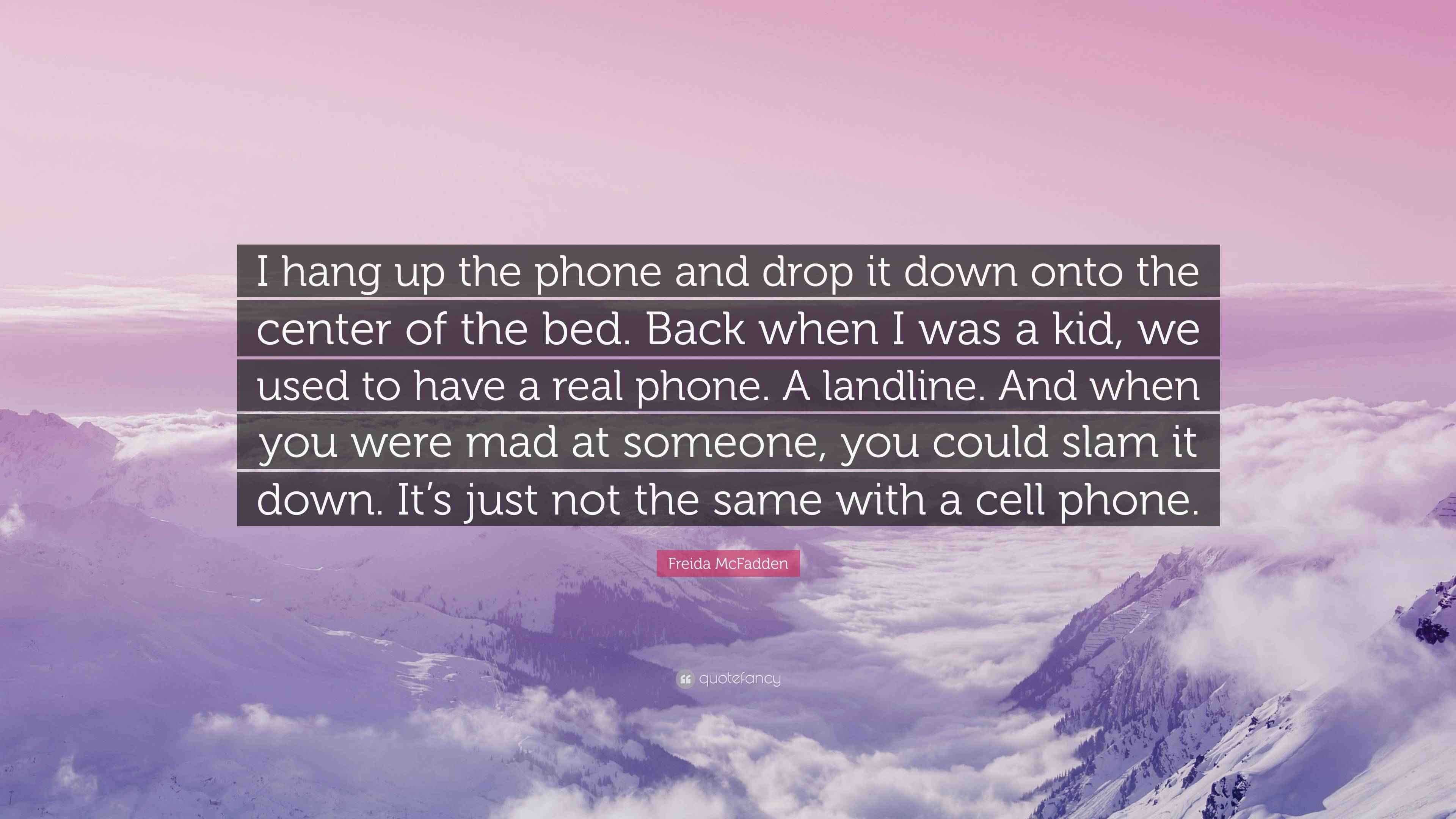"Hang Up On You, Not In The Mood": What It Means & How To Say No
Apr 25 2025
Ever felt the urge to disconnect, to retreat from the world, to simply... not? The quiet understanding that "not in the mood" is a valid human experience, a signal to ourselves and others that we need space, is gaining momentum.
In an era saturated with constant connection, the desire for solitude, for a break from the relentless demands of socializing, and even the simple act of conversation, is becoming increasingly recognized. This isn't about rudeness or avoidance; it's about self-preservation, a crucial act of mental and emotional hygiene. The phrase "hang up on you not in the mood" encapsulates this feeling perfectly, a succinct declaration of boundaries in a world that often struggles with respecting them.
The ubiquity of social media platforms like TikTok has amplified this sentiment. The platform, known for its bite-sized content, has become a fertile ground for expressions of this modern malaise. Users, like @sheluvmick, @victoria_valenzuela99, and @yosoloskii2, are utilizing the platform to share their feelings on this matter. These videos, often accompanied by relatable hashtags such as #fyp, #notinthemood, and #relatable, resonate deeply with a generation that is more comfortable expressing their vulnerabilities and setting boundaries.
The origins of this sentiment are multifaceted. The pressure to always be "on," to be available and responsive, is a significant contributor. The sheer volume of information and interactions that we encounter daily can be overwhelming. The need to recharge, to disconnect, to simply be without the pressure of performance is a powerful one. As Alexarossum commented on March 23, 2024, the feeling is palpable.
The meme culture also reflects this feeling, with many users creating content around it. One particular meme references a Peppa Pig episode where Peppa couldnt whistle and finds out Susie can whistle. It encapsulates the idea of a sudden, decisive end to a connection, when the circumstances feel emotionally draining.
The beauty of this phrase lies in its simplicity and directness. It cuts through the noise, offering a clear and concise explanation of one's emotional state. It's a way of communicating "I need space" without having to over-explain, a vital skill in a society that often demands explanations for prioritizing one's own well-being.
Moreover, the phrase offers a level of freedom. It allows people to be honest about their feelings without feeling obligated to cater to the expectations of others. The sentiment also extends beyond simple social situations. It may also relate to an individual's need to catch up on work, avoid crowded places, or focus on personal needs. It's also become common to use their health as an excuse to elegantly escape an unwanted situation.
Learning to communicate this feeling effectively is key. It's about finding the right balance between protecting one's own needs and maintaining positive relationships. As @therealashleynichole and @itsyogirlamaya2 highlight in their videos, the phrase itself serves as a direct expression of one's personal desires.
Many people struggle to state their needs. Often, people worry about coming across as rude or offending the other party. However, as @kamiecrawford points out, many people understand and accept this simple request for space. When people's families and those around them know about this, it becomes a simple matter of saying something like, I am sorry, but I am not in the mood to talk right now.
Ultimately, acknowledging and validating the need to be "not in the mood" is a sign of emotional intelligence and self-awareness. It's a pathway to building healthier boundaries, fostering more authentic connections, and prioritizing mental well-being. It's a reminder that it's okay to disconnect, to recharge, and to simply be, without apology.
Here are some ways you can address this feeling. If you're feeling overwhelmed, consider the following approaches:
- Set Boundaries: Communicate your needs clearly and respectfully.
- Prioritize Self-Care: Engage in activities that help you recharge.
- Seek Support: Talk to trusted friends or family members.
- Embrace Solitude: Make time for yourself and disconnect from distractions.
Remember, it's okay to not always be "on." It's okay to say, "Hang up on you...not in the mood." Your mental well-being is paramount.
This sentiment has found expression across various social media platforms. TikTok users are also actively sharing their feelings, and often creating videos related to it. These videos often garner significant engagement as users find the content relatable.
The prevalence of this sentiment highlights a growing awareness of the importance of mental health and setting personal boundaries. It's a sign of maturity and self-awareness to recognize when one needs a break and to communicate that need effectively. The phrase "Hang up on you...not in the mood" is not a sign of rudeness, but rather a declaration of self-respect and self-preservation.


